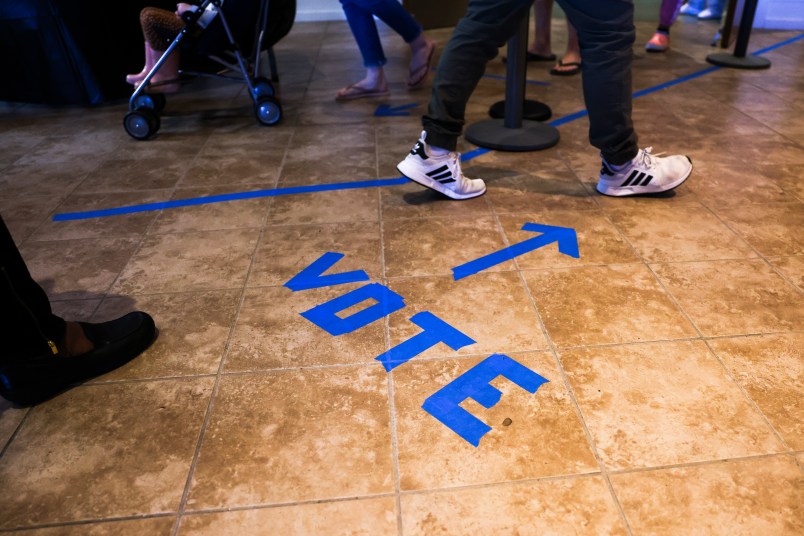I’m second to no one in praising Joe Biden and the Democrats for passing the $1.9 trillion relief bill. But I have doubts about a few other initiatives coming from Biden, the House Democrats, or both. One of these is HR 1, the For the People Act, passed by the House. I’m all for it, but it won’t pass the Senate, and the Democrats need to pass something that will repudiate Republican attempts at voter suppression.
I’m not sure how or whether the Republican bills will actually affect outcomes. They could even prod Democrats to vote. But they represent an attempt, whether successful or not, to subvert our democracy. And in fighting them, Democrats have a chance to perpetuate the kind of coalition that opposed Donald Trump’s attempt to “stop the steal” — a coalition that included Republicans and Independents. Unfortunately, HR 1 may not be the way to go about it.
The 886-page bill is a Christmas tree of political, and not merely voting, reform provisions. It includes automatic voting registration, reform of the Federal Election Commission, campaign finance reform, mandatory donor disclosure in political ads, sweeping redistricting reform, voting rights for felons who have served their terms, support for a Constitutional amendment to overturn Citizens United, and an affirmation of Congress’s power to make the District of Columbia a state.
It forbids the use of taxpayer money to fight employment discrimination suits, sets limits on the use of funds for inaugural committees, and requires presidential and vice-presidential candidates to disclose their tax returns for the prior ten years. It would also make general election days a federal holiday. That’s just a few of the provisions.
Republicans will not support the bill, and I suspect some Democrats might not either. In a Zoom call last night sponsored by Indivisible Montgomery and Silver Spring Progressive Action, Senator Chris Van Hollen said of the bill, which will be introduced in the Senate today as S 1, “We do not see any Republican support.” And it is not a budget bill and can’t be passed by a simple majority under reconciliation rules.
Van Hollen says that to pass it, the Democrats need either to make an exception to the filibuster rules or eliminate the filibuster altogether, but I do not believe that the Democrats can get a majority to suspend the filibuster to pass this massive and complicated and controversial bill. Some Democrats may not even support the bill.
What I would suggest is that the Democrats boil down their efforts to several measures that would frustrate current voting suppression efforts and that very possibly might command the support of ten Republicans who opposed Donald Trump’s attempt to steal the last election. I am not a legislative expert and cannot say exactly what those provisions would be. My guess would be making general election day a federal holiday, which is very popular, ensuring that polling places are readily available in number and distance. and ensuring that voters can vote by mail. I would stop there at these popular measures.
I’ll say one more thing about it. Democrats are already framing the issue as one of race and civil rights, portraying Republican efforts as reinstituting Jim Crow. To be sure, African-American voters are a significant target of Republican attempts to suppress the vote, but by no means the only. In two of the three states that recently passed bills, Iowa and Utah, African-American voters are a tiny minority. Hispanic voters are also a target of the measures; so are college students and the young in general. And the suppression of the vote would also affect the aged and infirm. The core issue is democracy, and that is an issue that could potentially draw together the kind of popular front among Democrats, erstwhile Republicans, and Independents.
Democrats need to figure out what is absolutely essential to defending democracy and go for it. And if ten Republicans won’t support, say, making election day a federal holiday, then the Democrats may have grounds to convince wavering Democrats to suspend the rules on cloture for votes affecting democratic rights. The provisions of HR 1 do have merit — I’d even go farther on public campaign finance – and if a year from now, the Democrats have gotten the whole 886 page bill through the Senate, I’ll gladly eat my hat. But in my opinion, Democrats would be wise to wait for another day and year when they have the kind of majorities they need to withstand filibusters for such a hugely ambitious undertaking.






